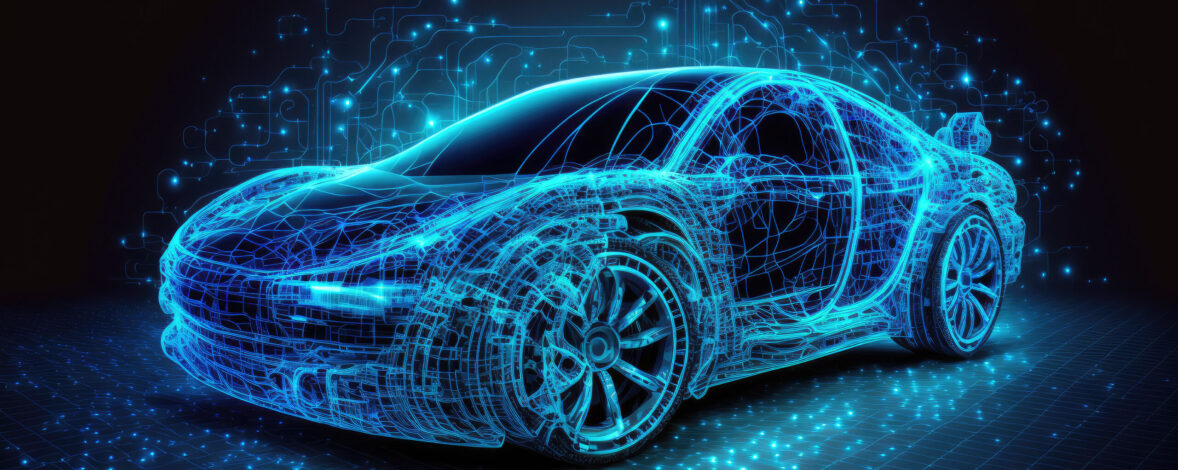There’s a common saying these days that “data is the new oil.” While the sentiment is correct that data is more important than ever, I think that saying vastly understates its importance. Data isn’t the new oil, data is the new everything. There is very little we do in the modern era that is not inextricably linked with, and benefiting from, high-quality data. The automotive market is no different. Today there are vast amounts of data coming from everywhere from connected cars to smart sensors. This rich data has the potential to enable new business and technical opportunities.
Yet despite success stories showing how data is being used in more compelling ways than ever before, we are only scratching the surface of its potential in automotive. There are many reasons for this and many structural and technical barriers in place in the automotive industry today that prevent us from taking data to the next level. If we are to fully realize the potential of what data can do, the industry needs to tackle these three challenges.
Taking Vehicle Data to the Next Level – 3 Challenges
- We are speaking different languages. Today, vehicle architectures bake in a myriad differences that impede data sharing. In each vehicle design, components are different, they are connected differently, and have different software — even different models from the same OEM! And yet, there are a great many underlying data points that are common across all vehicles that, if made universally accessible, could add significant value. If we have a hope of ever delivering connected vehicles that communicate and tell each other useful things like, “Hey, heads up, I’m about to start braking!”, we need better interoperability, like a Rosetta Stone for vehicles. One initiative poised to increase this consistency is the Vehicle Signal Specification standard from COVESA, which is growing in its adoption. Last month, Sonatus participated in a webinar about VSS and we documented many of the advantages in our accompanying blog.
- We are stuck in the past. Too much of how data is captured today is stuck in the ways of the past. Everything about modern computing is evolving, with frequent updates to consumer electronics, but most cars are rarely updated. That is for a good reason: the design and validation of the complex, safety-critical systems of vehicles is hard work and it takes time. There are many safety-critical systems that must be thoroughly validated and updated deliberately. At the same time, there are many systems that are not safety critical that could capture useful data, yet updates to these systems are often slowed to the same pace as the safety-critical ones. Sonatus Collector benefits from this observation, enabling fine-grained data capture policies to be deployed quickly without posing a safety risk nor requiring the heavy validation burden that comes with it.
- We are not optimizing for the cloud. Another issue is that conventional data collection is largely fixed, resulting in a no-win situation. To avoid massive LTE uploads, cloud ingestion and storage, all of which can become expensive, data capture is often constrained and the result then fails to provide enough information to make valuable insights. A better approach is to recognize that not all data is equally valuable all the time. For example, there’s little utility in sending to the cloud high resolution data when everything is working normally, such as reporting every 10ms that the antilock brake system is working properly. Conversely, it would be very desirable to capture high resolution event data before and after a fault in ABS to diagnose the problem, and to also capture it from a range of affiliated systems that might help diagnose the underlying issue. Only through configurable trigger, capture, and analysis approaches can we reap the benefits of high-quality data without capturing everything at all times. Our approach to data capture enables extensive configurability and has brought accolades from our users to enable exactly these capabilities.
The importance of high-quality data cannot be overstated. Vehicles need to evolve to make rich data available, and the good news is that this evolution does not require re-architecting of vehicles. Sonatus has achieved success stories of deploying high-quality data monitoring systems in many vehicle models and our customers are benefiting from it right away. We’re a bit passionate about this, I admit, but only because we’ve seen first hand what the data capture of the future looks like, and it’s hard to turn back.
Dr. John Heinlein
Chief Marketing Officer
Sonatus
contact@sonatus.com
